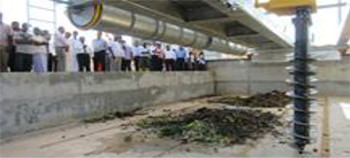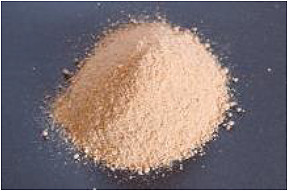Yield Improvement by the Usage of Compost Soil Conditioner
KAWASHIMA CO., LTD.
| Publication date | February 16, 2018 (Posted on July 7, 2022) |
|---|---|
| Sector | Agriculture, Forestry, Fisheries |
The worsening of water shortage caused by frequent droughts and other factors is increasing the damage to agricultural products and reducing the food self-sufficiency rate. In developing countries, the poverty rates are high and farmers account for the majority of the working population, so improving agricultural productivity is an urgent social issue under a vulnerable environment that is susceptible to droughts and other impacts. Supporting the establishment of an organic fertilizer supply system by introducing composting plants to produce high quality compost from household and agricultural waste, will improve the soil quality while restoring yields, which contributes to the adaptation measures in food supply and solving poverty.
Company Overview

KAWASHIMA CO., LTD. was founded in 1987 and developed the composting plant RA-X in 2000 and has been engaged in its manufacturing and marketing. The corporate mission is to provide eco-friendly technologies for a recycling-oriented society.
Adaptation Initiatives
[Products and Technologies]
- Composting plant RA-X:
- Screw-type automated agitator that efficiently produces high-quality compost by stirring organic waste to allow air to pass through evenly for sustained high-temperature aerobic fermentation. It is easy to maintain and cost efficient.
- BX-1:
- Aerobic bacteria that converts sludge and manure into odorless compost using rice bran as the main raw material. It promotes the fermentation of compost and reduces odor during fermentation.
Both RA-X and BX-1 are proprietary technologies of KAWASHIMA CO., LTD., and RA-X has been patented (patent number: 3607252). A project using both technologies was registered as a Clean Development Mechanism (CDM) project in 2011.
[Project Details]
In Sri Lanka, the amount of generated household garbage is increasing due to economic development and diversification of lifestyles. Household garbage is disposed of by open dumping at waste disposal sites, but there have been issues of odor, hygiene, and groundwater contamination, and the remaining years until its capacity is running short. Approximately 55% of household garbage is food, which is organic waste. An effective way to reduce the volume of garbage is to recycle it by aerobic fermentation into compost. In FY2013, our project was selected by Japan International Cooperation Agency (JICA) as a part of the Project for the Development of Small and Medium-sized Enterprises Overseas - Dissemination and Demonstration Project -, and was completed in April 2017. Nine additional units had been delivered to the Sri Lankan government after the project.
We manufacture the equipment in Japan and export to local governments while the local partner companies carry out maintenance, operation management, and construction supervision.
[Factors of Success and Challenges for Further Development]
Support from JICA through the Dissemination and Demonstration project was essential, as the introduction of new technologies always requires a proven track record. We were able to establish a relationship with the local government and demonstrate our technological and economic superiority, which led to the commercialization of the project. We plan to expand our business throughout Asia in the medium to long term.



